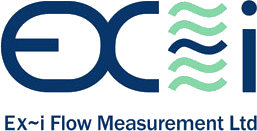With the recent tumble in oil prices, it would seem an unlikely time for a company such as Shell to be expanding its natural gas operations. That is exactly what it has done, however, by acquiring BG Group PLC, one of the UK's leading LNG (liquefied natural gas) producers.
LNG is supplied under long-term contracts, which are linked to oil prices. As oil is currently priced at around $34 (£23) a barrel, up slightly from £32 (£22) at its lowest, this is a major concern for those involved in shipping LNG, especially as the average price of a barrel of oil was $115 as recently as the summer of 2014. Stagnating economic growth in China and other major markets adds to those concerns and the markets remain nervous that there will be an over-abundance of supply with limited demand.
Shell’s $35bn (£24bn) merger with BG also seems oddly timed as BG suffered a 67% decrease in its LNG supply profits in 2015, despite increasing its shipments by nearly 60%. All round, annual profits were down by 58% at $1.7bn (£1.17bn). However, CEO Helge Lund was optimistic and said BG had “delivered an excellent operational performance in 2015 in line with, or ahead of, our guidance for the year.”
Once part of British Gas, BG became a separate entity in 1997 when British Gas divested Centrica. It is the largest supplier of LNG to the USA and has operations in 25 countries. One of those countries is Australia and Lund revealed that despite “difficult market conditions” new capacity came on stream from Queensland last year. In total, they delivered 282 shipments of LNG worldwide in 2015.
BG was not alone in suffering a significant drop in profits last year. Shell also saw its annual profits fall by 87%. In addition, Shell has announced that it will cut 2,800 jobs across the two organisations. This constitutes around 3% of the companies' combined permanent workforce worldwide and does not include the 7,500 job losses announced by the company last year or the $30bn worth of assets it plans to sell off.
This all compounds to make Shell’s decision to expand a strange one, but is purportedly based on the assumption that oil prices will reach $90 a barrel by 2020. As Shell was already one of the world's biggest distributors of LNG, this merger is likely to see the company dominate the market whether the prices pick up or not.
Ex~i Flow Measurement supports the natural gas industry by supplying gas flow measurement and engineering solutions to operators all over the world. To find out what we can do for your operation, call us on 01243 554920.
